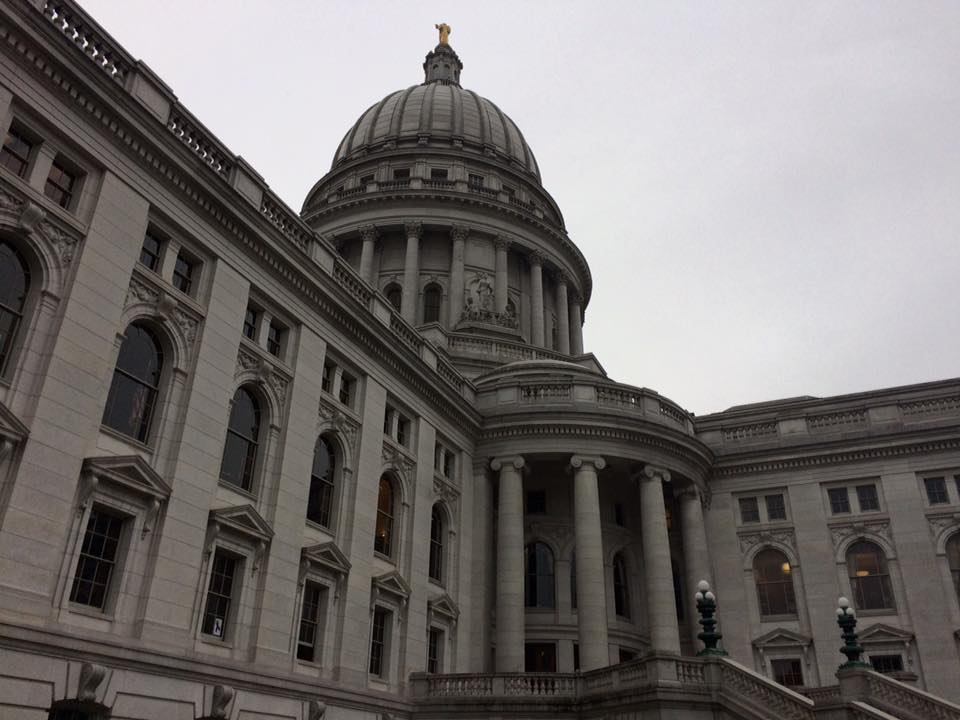Politics
Federal court allows Wisconsin redistricting case to proceed

MADISON, Wis. (AP) — A three-judge panel of federal judges on Thursday denied a request by Republicans to dismiss a redistricting lawsuit brought by Democrats, a move that keeps the case alive while the GOP-controlled Legislature wants the battle to instead be fought in state courts.
The federal court also combined two lawsuits — one filed by voters represented by an attorney leading the Democratic Party’s efforts on redistricting and the other by voting advocacy groups supported by Democrats. The court also allowed Wisconsin’s five Republican congressmen and Democratic Gov. Tony Evers to intervene in the case.
The GOP congressmen and Republican-controlled Legislature argued for dismissing the case, saying it was wildly premature and was an impediment to lawmakers doing their job of drawing new maps. Republicans also argue that the issue belongs in state courts. But the panel of judges refused to dismiss the lawsuit.
The judges noted that federal courts, not state courts, have intervened in the last three redistricting cycles in which Wisconsin has had a divided government, as it does now.
“The court and parties must prepare now to resolve the redistricting dispute, should the state fail to establish new maps in time for the 2022 elections,” Judges James Peterson, Amy St. Eve and Edmond Chang wrote.
They also said that new maps “perhaps” might be enacted either by the Legislature or state courts, but it was proceeding with setting a schedule in federal court “that will allow for the timely resolution of the case should the state process languish or fail.”
Both Peterson and Chang were appointed to the court by former Democratic President Barack Obama. St. Eve was appointed by former Republican President George W. Bush, and then to the federal appeals court by former President Donald Trump.
A hearing in the case is set for Tuesday. The judges have asked the Legislature and Evers to tell it when they will have new maps to present.
Republican legislative leaders, Assembly Speaker Robin Vos and Senate Majority Leader Devin LeMahieu, did not immediately reply to messages seeking comment.
“The federal court did the right thing in dismissing Republican efforts to short-circuit the case,” Sachin Chheda, director of the Fair Elections Project, a nonpartisan group promoting independent redistricting, said in a statement. “Federal Court is the right venue to handle these complicated issues, as they have the experience and facility, which the State Supreme Court does not.”
Conservatives brought a case supported by the Legislature to the Wisconsin Supreme Court, which has not yet said whether it will take it or require it to first go through lower state courts.
All of the lawsuits say it’s unlikely the Legislature and Evers will agree on new maps, so the courts should be prepared to draw them instead.
The first federal court lawsuit was filed by Democratic Party attorney Marc Elias on behalf of Wisconsin voters. It asked the court to throw out Wisconsin’s current maps as unconstitutional and to not allow them to be used as the basis for drawing new lines or for any future elections. Democrats also asked the federal court to draw new maps if, as expected, Evers doesn’t sign into law maps drawn by the Legislature.
The second lawsuit making similar arguments was filed by Law Forward, a group representing Black Leaders Organizing for Communities, Voces de la Frontera and the League of Women Voters of Wisconsin.
Those cases are now combined into one.
The lawsuits were filed even though the Legislature hasn’t produced a map or taken any votes yet. The Legislature is charged with the task of redrawing political boundary lines for members of the state Assembly and Senate, as well as Congress, every 10 years.

